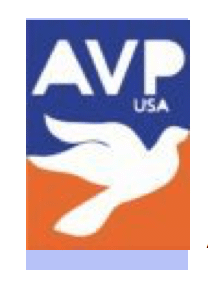< Back to Best Practices Index
(February 26, 2020)
The AVP-USA Facilitation Community Model can be thought of as concentric circles, formed around the core of AVP— Circles 1 and 2 which are the fundamental elements identified as supportive of transformation.
Circles 1 and 2 describe the traditional core and standard workshops of AVP.
Circle 1: AVP Methodology: This is the core of the AVP style of experiential learning, our belief in Transforming Power and how we get there. It is the heart, the center, of what we do. AVP methodology includes AVP core values, philosophy, principles, processes and practices that distinguish AVP from other experiential training.
Circle 2: AVP Standard Workshops: Standard Workshops consist of Basic, Advanced, and Training for Facilitators (T4F)—the full 18-22 hours of AVP workshops, delivered by a team of AVP trained facilitators within an AVP recognized group. These elements represent the standard workshops which have been proven over time. They define the unique value that AVP can offer its participants, partners and clients.
Circle 3: AVP Variations: AVP Variations are delivered by AVP trained facilitators in an AVP recognized group, using AVP methodology. They may have different content and/or fewer hours. The workshop activities are collectively developed and collectively owned by AVP.
There are two categories of Variations:
- Sessions that support the delivery of standard workshops, for example, Continuing Learning (facilitator training after a T4F workshop), an AVP “taster” or introductory session, AVP training nights or support groups, etc.
- Stand-alone specialized topics workshops/sessions (sometimes referred to as “specialized topics” for AVP facilitators), for example, workshops on empathy or trauma resilience.
Circle 4: Adaptations: Adaptations are addressed particularly by this Committee. These workshops or programs are not standard AVP workshops although they may be closely related. Adaptations are designed by an experienced AVP facilitator but may be delivered by an outside organization and its respective facilitators. They include individuals or organizations that have adapted aspects of AVP to meet the specific needs of particular target groups, communities, or contexts. The Adaptations Committee was formed to connect with and explore ways for AVP-USA to support those who have created Adaptations, as well as ways for those who have created Adaptations to “give back” to AVP in ways that will promote the growth of AVP in the USA and beyond.
Circle 5: AVP-Influenced Workshops: Circle 5 describes AVP-influenced workshops that are presented by organizations or individuals who have been exposed to AVP. These groups or individuals may be teachers, trainers, and other types of facilitators who have been influenced by AVP. Although they are using activities or exercises based on AVP pedagogy and methodology, they may be using these out of context of standard AVP workshop processes. One example includes schools where the teachers have been inspired by AVP to do circle learning, a critical element of AVP workshop processes. A second example could be a homeless shelter where an AVP facilitator has shared some AVP materials and elements of AVP processes, but the shelter program chooses not to conduct a full AVP workshop. AVP-influenced organizations are encouraged to acknowledge the influence and contributions of AVP to their respective program, but they should not call themselves an “AVP workshop”.

